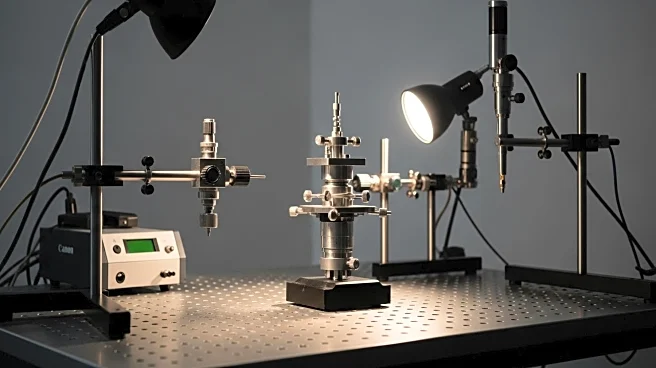What's Happening?
Cardiff University's Gravity Exploration Team has achieved record-breaking sensitivity in detecting very high-frequency gravitational waves using the Quantum Enhanced Space-Time measurement (QUEST) experiment. This table-top interferometric system, a miniature version of large-scale detectors like LIGO, can measure changes in length 100 trillion times smaller than a human hair. The experiment aims to explore the fundamental nature of space-time and has set new limits on gravitational waves potentially emitted from early universe sources or miniature black holes.
Why It's Important?
The QUEST experiment's sensitivity could lead to breakthroughs in understanding space-time, gravity, and dark matter. By setting new limits on gravitational waves, researchers can refine theories about the universe's origins and the behavior of quantum gravity. This advancement may contribute to the development of next-generation gravitational wave detectors, enhancing our ability to study cosmic phenomena and potentially uncovering new physics.
What's Next?
The Cardiff team plans to conduct a months-long science run to further improve sensitivity and probe space-time fluctuations and gravitational waves. This extended research could provide deeper insights into quantum gravity and the fundamental structure of the universe. The experiment's success may inspire similar approaches in other research institutions, fostering collaboration and innovation in the field of physics.
Beyond the Headlines
QUEST's table-top approach offers flexibility in optimizing searches for fundamental science signals, potentially leading to more accessible and cost-effective research methods. The experiment's success highlights the importance of interdisciplinary collaboration and technological innovation in advancing scientific knowledge.









